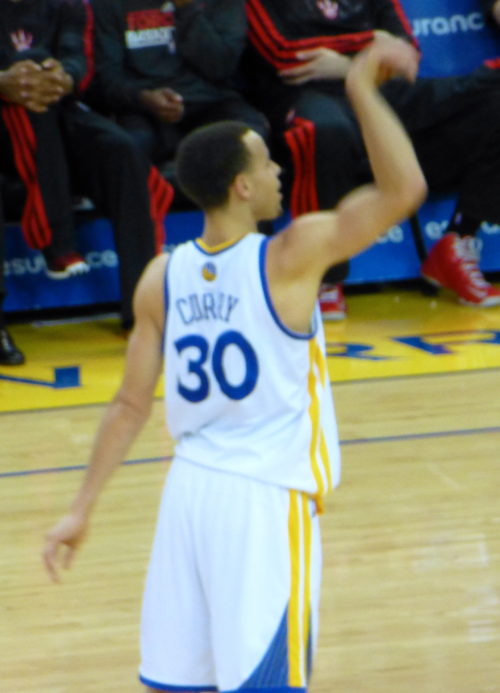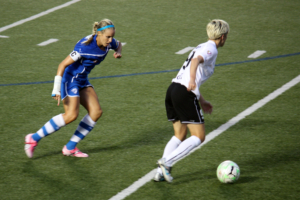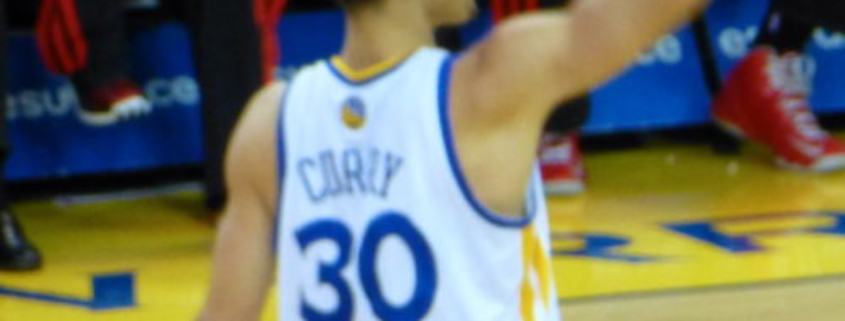Fighting Paralysis
Paralysis can be an education: it makes you infinitely more aware of the possible. Possibilities were all I could think about recently in urgent care when I sat on a bed waiting for a doctor to tell me why I could not move the right side of my face and was losing the ability to control the right side of my body. I stared at my hand and moved my fingers back and forth trying to gauge how much of a change there was in my ability to move, touch, and pick things up. I could pick up my computer but had trouble maneuvering a pen well enough to write. I had trouble reading because my right eye wasn’t blinking properly. I knew only that initial evaluations showed it was unlikely that I was having a stroke.
The rest was being considered. Eventually the doctors decided I had Bells Palsy, a nerve problem that is, thankfully, temporary in most cases. I spent the next ten days on a massive amount of medication, slowly building back my ability to easily form words, eat, drink out of straws, and read. In that time, I watched our president accuse a wide swath of American athletes of being sons of bitches for kneeling during the national anthem—after he disinvited the Golden State Warriors and their star guard Steph Curry, one of the most popular players in the NBA, to the White House. I started to be able to rely on my right arm and leg, but I could not kneel.
* * *
I love sports. I love the drama of Steph Curry’s three-point shots; I love the fierceness of the Seahawks fans in my town who consider themselves the 12th Man on the field; and I love the passion with which athletes and fans overcome obstacles in the face of all kinds of adversity. Like all lovers of great stories, I participate in the grudges and rivalries. I hate the Yankees as much as anyone; the best roster money can buy makes them the perfect spoil, the inimitable enemy.

As I exercised my face, I thought about the thousands of hours of yoga Steph Curry and his teammates do to help them become excellent at basketball. Curry’s a small guy, and he used every tool he could find to become a nimble and excellent player and shooter. I thought about the skill of Megan Rapinoe, the soccer star who was the first to take a knee in solidarity with Colin Kaepernick. I thought about the football players who are suffering from traumatic brain injury, and the pressure to keep them performing violent plays that put their lives at risk. I thought about challenges and the things we do to overcome them.
The last thing you want to do is tell a great athlete what they can’t do. They are trained to fight against constraint and prove you wrong. This is something every sports fan knows. We are all formed by memories of our heroes either defying the odds or being crushed by that defiance. I am still impacted by the 1988 World Series when an injured Kirk Gibson hit an improbable home run against Dennis Eckersley, the best relief pitcher in baseball at the time, beating my Oakland A’s. Every baseball fan in America watched that night in awe of what was possible. When the reality of the win sunk in, baseball announcer Vin Scully exclaimed: “In a year that has been so improbable, the impossible has happened!”
And yet. And yet, after the athletes protested, my social media feed filled up with folks I know and care about writing that athletes shouldn’t be protesting, didn’t know what they were talking about, and were ungrateful. These people who I know wrote about violent acts that some football players have been accused of, as if that means all the protesting players were criminals, and as if that makes violence against them OK. First, discount the victims.

Jelani Cobb, writing for The New Yorker, responded to the ungrateful accusation better than I ever could have in his editorial piece, “From Louis Armstrong to the N.F.L.: Ungrateful as the New Uppity.” I, however, still could not stop thinking about the fact that people I know have the nerve to talk about the protesting athletes in disparaging ways when what their protest tells us is that they are fighting for their lives. Michael Bennett of the Seahawks was shoved to the ground by Las Vegas police officers who put a knee on his back, held a gun to his head, and threatened to kill him. While this was happening, he considered that like so many, he might not live through it. He and others had been running away from what sounded like gunshots inside a casino, and police found him to be suspicious, detaining him until they verified his identity as Michael Bennett, famous football player. Bennett has been called a liar and a publicity hound by the LVMPD, and they deny his account, saying that they have been through video recordings of the incident and found nothing unlawful. But the officer who handcuffed Bennett did not have his body camera turned on, and there is no recording that proves Bennett did not have a gun to his head or a knee in his back.
* * *
Louis Armstrong sang a song by Robert MacGimsey called “Shadrach, Meshach, and Abednego,” about three figures from the Book of Daniel who are thrown into a fiery furnace when they refuse to bow down to King Nebudchanezzer’s image. The three men are preserved from harm, and the king sees four men emerge from the fire—the fourth like the son of God. To me, MacGimsey’s message in this song is pretty clear: protest is so much a fabric of history that it is biblical. So to anyone reading this who is crying about disrespect… consider that.
In our country a person is more likely to die at the hands of police than to become a multi-million dollar athlete. In 2015, African Americans were shot by police at three times the rate that white people were. Michael Bennett had every reason to be terrified, despite his status as a professional football player. He had every reason to believe that, to the police, his life didn’t matter.
I could not sit and watch those players kneel without some kind of participation. And so, with my semi-paralyzed body, I started sending The New Yorker article to those who wanted the NFL players to cease their protest out of “respect” for the flag. It was a risk, because I knew they would think I was saying they were racist. That’s not something you are supposed to do. I asked these people why the players’ protests weren’t valid. I pointed out that people of color are saying that their lives are on the line and asked why we shouldn’t listen.
And then I went to the gym and lifted weights, trying to build back some strength I lost. I thought about Steph Curry and his hours of yoga powering his thousands of jump shots. I was doing every thing I could to push past paralysis in my mind and body.
None of the people to whom I sent The New Yorker article have responded, and I’m told by other friends that we will never end racism. Maybe that’s true. Maybe we are destined to become more and more divided. I’m still going to repeat the phrase coined by Cobb—“ungrateful as the new uppity”—to everyone I meet. Looking for the improbable, I write this essay.
 Emma Margraf is a writer who lives in Olympia, Washington, works for the state government, and writes for several local publications in the South Sound. She has been published in Manifest Station and is a candidate for an MFA at Antioch University Los Angeles.
Emma Margraf is a writer who lives in Olympia, Washington, works for the state government, and writes for several local publications in the South Sound. She has been published in Manifest Station and is a candidate for an MFA at Antioch University Los Angeles.





